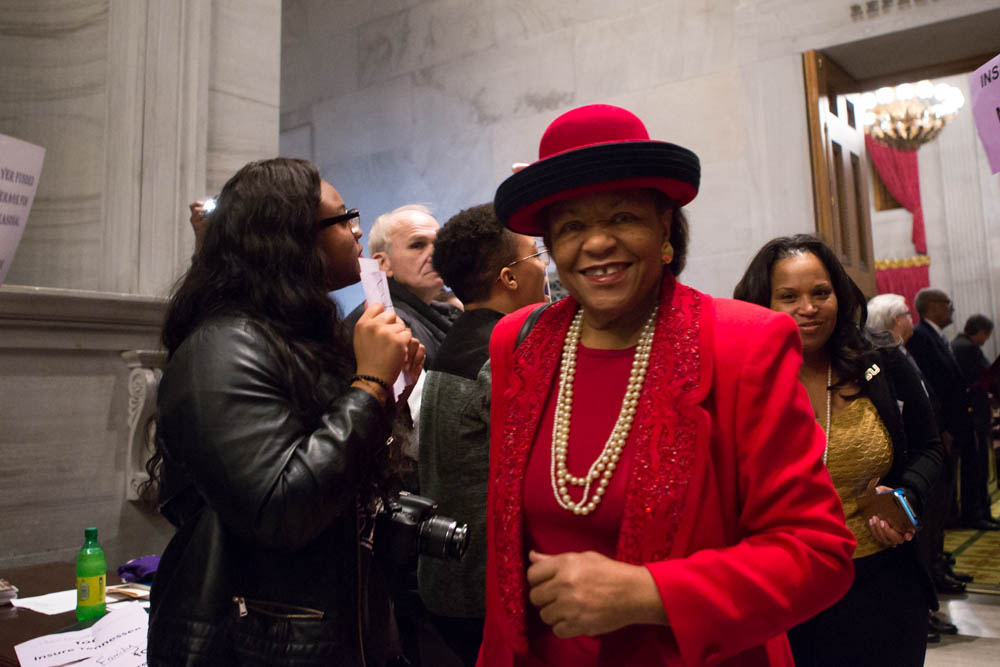
Monday marks the start of Nashville officially saying goodbye to a woman who spent decades in service to the city. Thelma Harper first won a seat on the Metro Council in 1983. She retired 35 years later as Tennessee’s longest serving female state senator and the first Black woman to serve in the state’s upper house.
Through all those years, even when she owned her own restaurant around the corner, Harper was a regular at Swett’s Restaurant, the meat-and-three in North Nashville. Her usual order was fried chicken and creamed corn. The corn was the important part. David Swett remember she would fuss at him if they didn’t have it. But Swett, who knew Thelma Harper as a colleague and a friend, says she rarely got to finish that corn before it went cold.
“She would spend hours eating because she was talking to everyone,” Swett says. “When we in the community needed some help with some political issues or needed advice about what we should do about this or that, she was always there to help you and consult with you on anything.”
But Harper’s assistance went beyond long conversations over fried chicken. When push came to shove, at the end of the ’80s, it even went beyond what you’d normally expect from an elected official.
In the fight over whether her largely Black district should continue to be the literal dumping ground for Nashville’s household trash (as it had been for generations, in one form or another), Harper didn’t just file bills and debate in committees. She stood at the front of protests, holding signs and chanting. She was even arrested for physically blocking trucks from entering the landfill.
It worked. That landfill was closed. And perhaps poetically, in the final weeks of her life, a nearby dumping area for construction waste was denied an expansion, meaning that it will have to cease operations in the next few years, too.
State Sen. Raumesh Akbari characterizes Harper’s work on the old Bordeaux landfill as a “brilliant legacy.” Akbari points to it as a prime example of the advice Harper gave her to champion the people she represents.
“She had her Nikes on but she still had her hat on,” Akbari says, referring to the image of Harper standing down the dump trucks. “You know, that is feet to pavement connecting with your constituents, willing to stand up even if it is at your own peril.”
Akbari says she learned a lot from Thelma Harper about what it is to be a public servant. The example was a full-spectrum approach to caring for the community Harper called home. Because while she fought to protect people, she also fed them and held celebrations with them — always while wearing her signature, eye-catching hats.
Thelma Harper died last week at the age of 80. On Thursday, she’ll be laid to rest after lying in state at both the Metro Courthouse and the Tennessee State Capitol.

